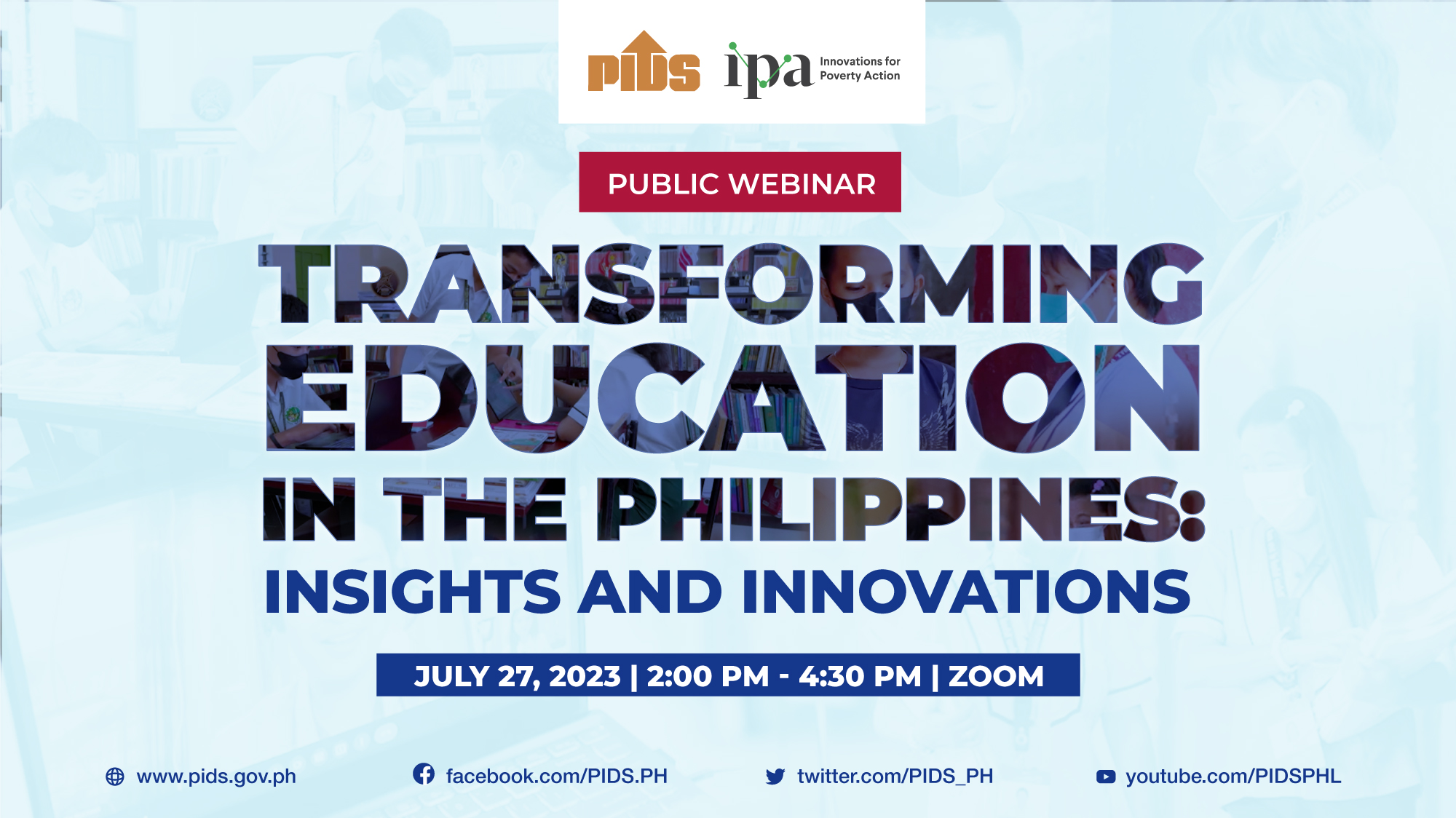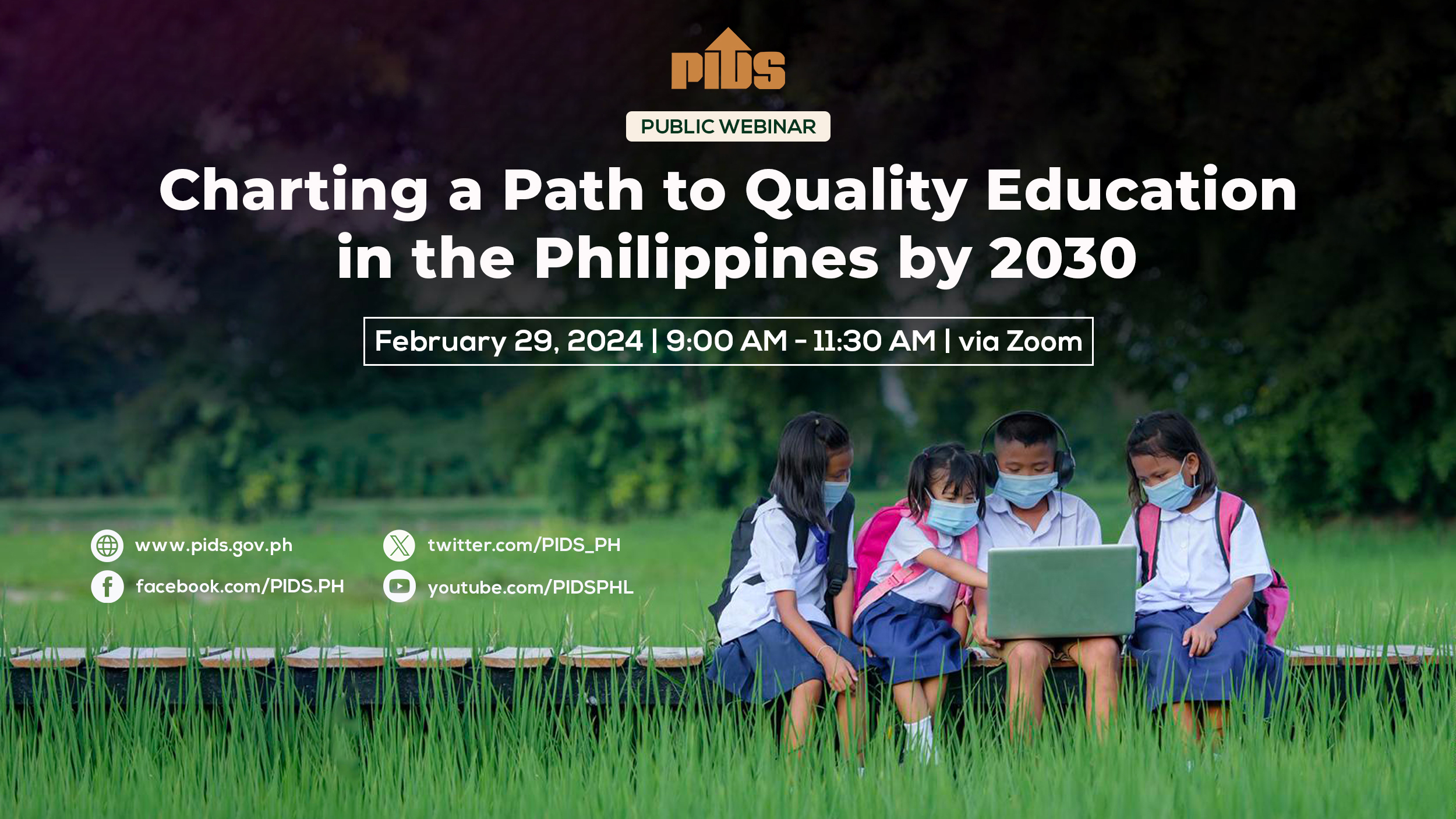MANILA, Philippines – After the Commission on Human Rights found employment and skill issues among K to 12 graduates, the government’s sole body tasked with a top-to-bottom review of the education sector said that it will prioritize reviewing the senior high school curriculum.
Karol Yee, the executive director of the Second Congressional Commission on Education (EDCOM 2), said that one of their priorities is to study the curriculum in grades 11 and 12 to come up with data-driven recommendations.
"One of EDCOM 2's Priority Areas is the review of the SHS curriculum and a validation of the K-10 review,” Yee said in a text message to Philstar.com.
“We are engaging [the Philippine Institute for Development Studies] and our research partners to collect empirical and data-driven studies to better inform our recommendations,” he added.
EDCOM II, which was created by Republic Act No. 11899, will be studying the performance of the Department of Education (DepEd), the Commission on Higher Education (CHED) and the Technical Education and Skills Development Authority (TESDA), all of which deliver education services.
Under the law, state think tank PIDS will serve as EDCOM 2’s research arm.
Yee said that beyond improving education policy, EDCOM will also provide more learning resources to guide education personnel.
"We will also share and publish resources that will be helpful for school administrators, teachers, principals, and educators. We look forward to creating a more rewarding educational landscape for all Filipino learners," Yee said.
Sen. Joel Villanueva, who is also a commissioner under EDCOM, said that the congressional body will also study other factors besides curriculum.
"The commission is also looking into improving learning outcomes, assessment of learning, teacher quality, coordination among education sub-sectors, education financing, employability of our graduates, among others," Villanueva said.
"We expect to see bigger and better reforms in our education system once the work of EDCOM 2 is complete," he added.
The CHR study focused on the extent to which students who graduated under the K to 12 curriculum were able to transition from school to work and how the COVID-19 pandemic affected their learning.
"New graduates experience culture shock upon entering the workplace because their expectations differ from what they were taught at school, and some fail to adjust to their work and decide to resign but have a hard time being hired again," the report said.
The finding was "reflected" by the supposed high attrition rate among new graduates, as "noted by an employer participant," the report added.
DepEd already reviewing senior high curriculum
In January, Vice President Sara Duterte — she is concurrently secretary of education — said that the department's ongoing review of the senior high school curriculum found it to be overstuffed with content and yet missing several prerequisites for essential learning competencies.
Only a little more than 10% of senior high school graduates landed a job, while 83% continued on to higher education, according to DepEd’s National Senior High School tracer study.
Some learning competencies also required "high cognitive demands" from students — a finding that previously appeared in the DepEd’s Basic Education Development Plan (BEDP) 2030, the agency’s first long-term plan to improve the quality of education.












